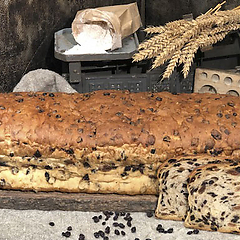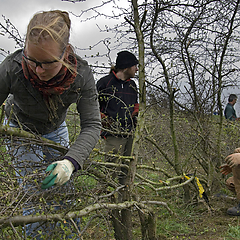Beekeeping as a practice is very much alive. Every year approximately 1,200 people follow the basics skills-course, afterwards the majority actually start "beekeeping" themselves.
A beekeeper is someone who is engaged in the domestication of bees or immen (beekeeping or apiculture), for the pollination of plants or the extraction of honey and beeswax.
Honey bees are found in many parts of Europe, Asia and Africa as native animals that live in cavities, eg cavities in tree trunks. Honeybees provide products that are useful to humans, such as honey and beeswax, but also propolis, a resinous substance that the bees use to disinfect and coat their homes.
95% of beekeepers consists of people who pracice beekeeping as a hobby. But just like the bee colonies of professional beekeepers, those of hobbyists also contribute to their task in nature: pollinating crops. They thus fulfill an essential link in the ecosystem.
Much research is being conducted into how bee colonies can be kept in the best possible way. The knowledge gained is exchanged through the national beekeepers' associations, of which the Dutch Bee Association is the largest with almost 7,000 members.
Current beekeeping is based on recently acquired scientific insights but clearly has its roots in history. Long before our era, honeybees have been domesticated by humans and are kept in man-made bee houses. It was only discovered in the 17th century that honeybees play an important role in pollinating (cultivated) crops.
Although the craft has been modernized, beekeeping still makes extensive use of "old" wisdoms . Beekeeping started in earthen pots and in woven baskets, but now bees are mainly kept in wooden hives, imitation hollow tree trunks. Related crafts are still practiced. Basket weaving, making beeswax candles, cosmetic items, etc.
Beekeeping has been a "craft" that has been practiced with love for many centuries.



